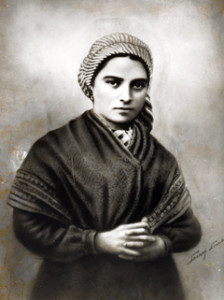
(Franciscan Media) Born in 1844 Bernadette was the eldest child of a very poor Mill Operator in France Lourdes. Her father Francois, was a good-natured, easy going man according to EWTN with little ability for operating a business and before many years, he forfeited the business due to debts.
During much of Bernadette’s childhood, her father worked menial jobs, picking up a days work as opportunity presented itself, from time-to-time Francois escaped his problems by turning to alcohol, something that is common to this day for some people.
Bernadette’s mother Louise and her children naturally were the ones that suffered the most as a consequence of Francois’ ineffectiveness to adequately provide for his family.
Louise was a hard worker, warm hearted neighbor and a model in her religious observances. To help feed and clothe her children, it was often necessary for Louise to go out and work by day–doing laundry for more prosperous citizens of her community and at least one occasion, she helped to harvest a crop of grain.
Bernadette was never strong as she suffered from a respiratory disease (it isn’t known whether it was asthma or tuberculosis) while her mother worked outside the home to help provide for her family, Bernadette cared for her siblings and helped in their moral and religious education.
During the Autumn of 1855 cholera struck Lourdes, Bernadette was not spared and because of her already weakened condition due to her health. A year later, the ‘Soubirous Family’ with less than a month of food in their home, sent Bernadette to live with her Auntie Bernarde to work with her.
When Bernadette returned to Lourdes, it made her very happy to be admitted to the day school conducted by the ‘Sisters of Charity’ and receive Christian instruction. At last, Bernadette began her secular education. The Nuns soon discovered that beneath the quiet and modest exterior, Bernadette had a winning personality and a sense of humor.
One very cold day when Bernadette returned home from school, her mother gave her permission to go down by the river and collect driftwood and fallen branches. Accompanied by her sister Toinette Marie and her friend Marie Abadie. Removing her stocking to cross the stream Bernadette heard a noise like a gush of wind toward the grotto, when she looked up, Bernadette saw a beautiful young lady who placed herself in a small niche in the rock, at one side of the opening and slightly above it. Bernadette starred in fascination when she saw the luminous apparition dressed in a soft white robe, golden roses gleamed on her bare feet–when the figure smiled at Bernadette, her sister and friend and beckoned them, the girls early reservations vanished and Bernadette reverently sunk to her knees and made a sign of the cross and drew her Rosary beads from her pocket that she always carried–the mysterious being also had a Rosary of large white beads and Bernadette recounted:
“The Lady let me pray alone, she passed the beads of the Rosary between her fingers but said nothing, only at the end of each decade, did she say the Gloria with me.”
When the recitation was finished, the Lady vanished into the cave and the golden mist disappeared with her–this experience affected Bernadette profoundly.
Bernadette subsequently exhibited independence. When she told her Confessor of the apparition, he made light of it think that she suffered from hallucinations. Nevertheless on the following Sunday, Bernadette asked for permission to go down to the grotto again, her father told her she may go as long as she took a flask of Holy water with her fearing that the apparition was actually a demon. Upon her arrival, Bernadette knelt down before the grotto and soon the Lady appeared as before. Bernadette sprinkled Holy water at her, the Lady smiled and bent her head, when the Rosary was finished she disappeared.
There were 18 appearances in all according to Franciscan Media the final one occurring on the ‘Feast of Our Lady of Mt. Carmel (16 July) although Bernadette, her sister Toinette Marie and their friend Marie Abadie provoked skepticism, Bernadette’s visions of ‘The Lady’ brought great crowds of the curious.
During the 13th appearance (02 March) of ‘The Lady’ Bernadette explained that she was instructed to, “Go tell the Priests to come here in procession to build a chapel here,’ at the grotto where the visions took place; During the 16th appearance (25 March) of ‘The Lady’ she revealed her name Bernadette recounted:
“She lifted up her eyes to heaven, joined her hands as though in prayer that were held out and opened towards the ground and said to me: ‘Que soy era Immaculada Concepciou.” (I am the Immaculate Conception) It was only when these word were explained to Bernadette, did she come to realize who ‘The Lady’ was.
Few visions have undergone the scrutiny that these appearance of the ‘Immaculate Conception’ were subject to. Lourdes became one of the most popular Marian shrines in the world, attracting millions of visitors. Many miracles have been reported at the Shrine and in the waters of the Spring. After thorough investigation, Church authorities confirmed the authenticity of the ‘Immaculate Conception’ in 1858
During Bernadette’s lifetime her privacy was continually invaded which she bore as patiently as she could but as her fame grew, she began to withdraw more and more.
In September 1878 Bernadette made her perpetual and final vows committing the rest of her life which was ebbing away to poverty, chastity, obedience and charity. When she was confined to a wheelchair or bed, she went on with her fine needlework and now had more time for prayer and meditation.
The Nun’s and the Superior all come to regard Sister Bernadette as the ‘Vessel of Divine Grace’ and believed in the reality of her visions of the ‘Immaculate Conception’ during her youth.
Once a visitor stopped Sister Bernadette as she was passing down a corridor and asked where she could get a glimpse of Sister Bernadette? The little Nun said, “Just watch that doorway and presently you will see her go through” and she slipped away through the door. Such was the prestige her presence gave to the Order, that many young Women now joined it.
In December 1878 Sister Bernadette illnesses worsened and she was confined to her bed in ‘The White Chapel’ as she referred to her bed with its white curtains, she passed away on this date a few months later.
Sister Bernadette Soubirous was Beatified in 1925 and Canonized in 1933 by Pope Pius XI
Related: Prayer For the Feast of St. Bernadette -Lourdes Prayer Request
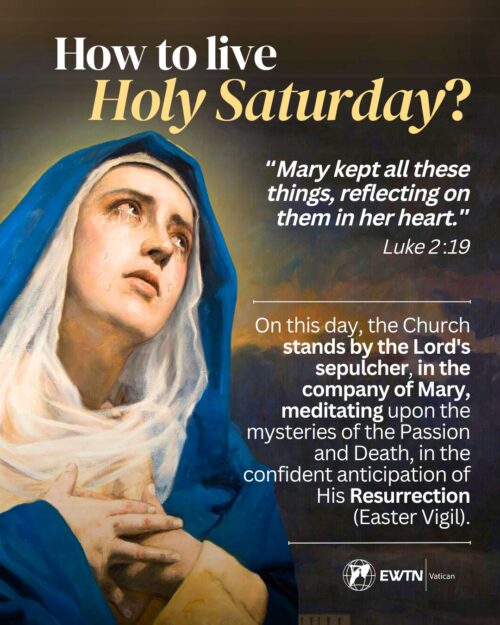
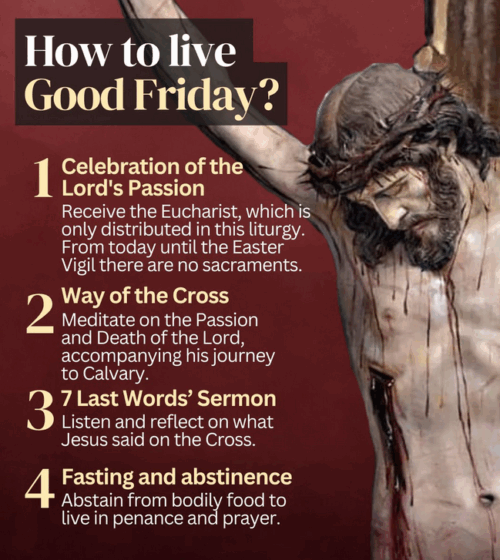



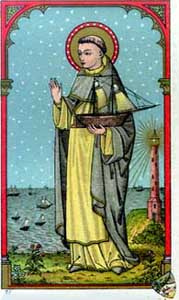
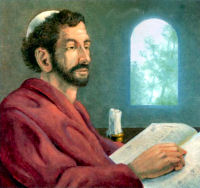
 Jesus died for all, that those who live
Jesus died for all, that those who live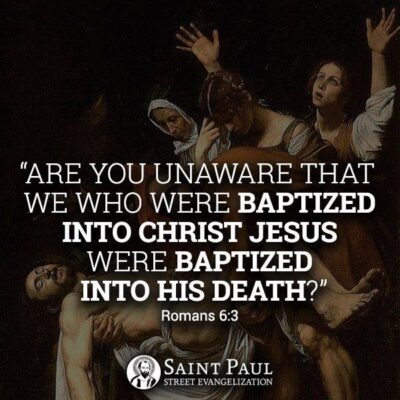
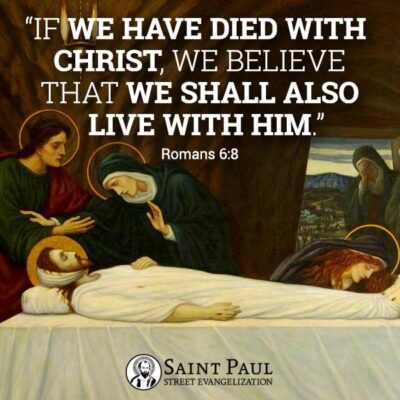
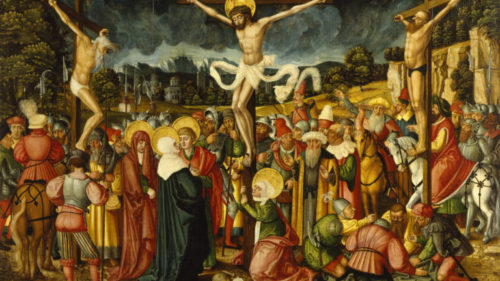 Christ Jesus humbled Himself and became obedient
Christ Jesus humbled Himself and became obedient I will sing of the Lord’s Great Love Forever!
I will sing of the Lord’s Great Love Forever!